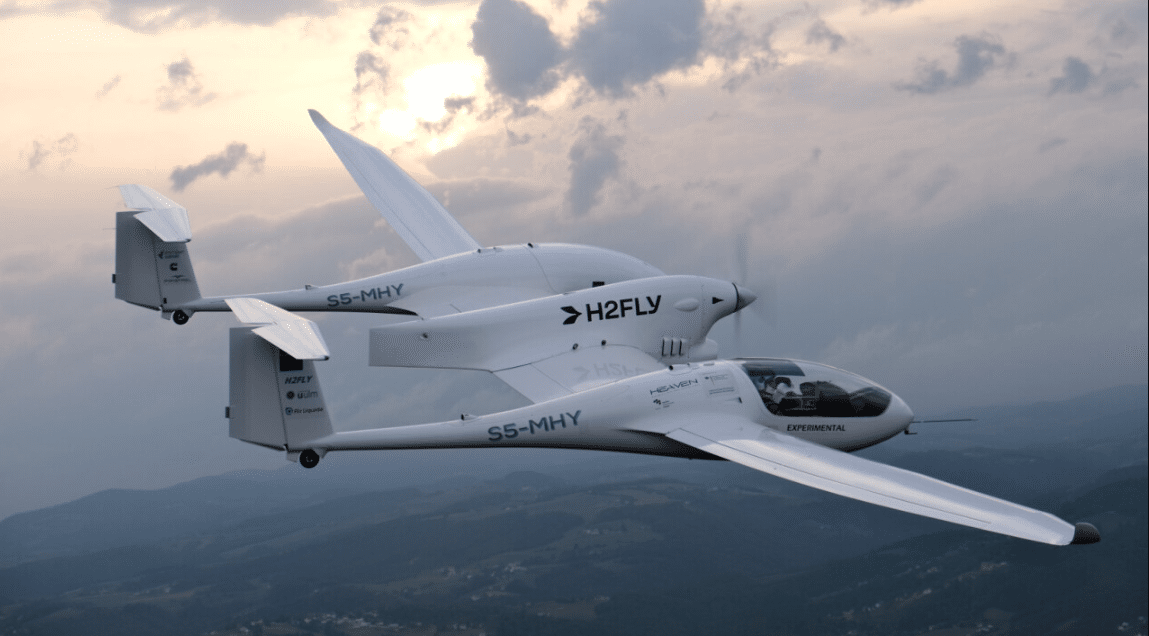During the summer season, at a compact airport located in Maribor, Slovenia, an innovative German company specializing in hydrogen-based energy solutions known as H2FLY accomplished a significant feat in environmentally friendly aviation. The event was made possible through collaboration with the HEAVEN project, which received funding from the European Union.
H2FLY Hydrogen-Powered Aircraft Features
The HY4, alongside its duo of aviators, maintained flight for a total duration of 3 hours and 1 minute. Consuming 10 kilograms of hydrogen fuel made this accomplishment possible. In the event that the aircraft were to fully utilize its onboard storage capacity of 24 kilograms, it would be capable of remaining aloft for a span of 8 hours.
Following the flight, pilot Johannes Garbino-Anton praised the technology’s performance, emphasizing the absence of vibrations, noise, and CO2 emissions compared to conventional aircraft.
H2FLY Hydrogen-Powered Aircraft power system includes a hydrogen storage device, a 120kW fuel cell energy converter, and an electric motor. This marks H2FLY’s eighth flight test event. While the HY4 has been flying since 2016, this summer marked a shift from gaseous to liquid hydrogen as fuel. Liquid hydrogen’s higher energy density reduces fuel tank weight and volume, doubling the aircraft’s range from 750 to 1,500 kilometers. However, handling liquid hydrogen at cryogenic temperatures (-253°C) introduces transportation and refueling complexities.
Note that we won’t commercially produce the HY4, constructed from fiberglass and carbon fiber. H2FLY’s next step is to expand the fuel cell system to a megawatt capacity, promising an extended range and an altitude of 27,000 feet. They plan to retrofit a 30-seat Dornier 328 demonstration aircraft with H2FLY Hydrogen-Powered Aircraft hydrogen-electric fuel cells in collaboration with Deutsche Aircraft, aiming for test flights in 2025.
Established in 2015 by five engineers from the German Aerospace Center Stuttgart and the University of Ulm, H2FLY focuses on powertrain development. In 2021, Joby Aviation, a Californian company specializing in electric vertical take-off and landing vehicles (eVTOL) for air taxi services, acquired H2FLY.
Read Also: DJI FlyCart 30 Released: This Delivery Drone That Can Carry 30kg

